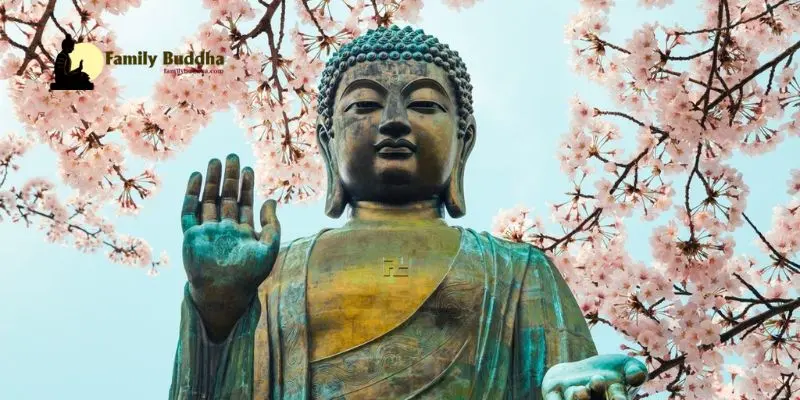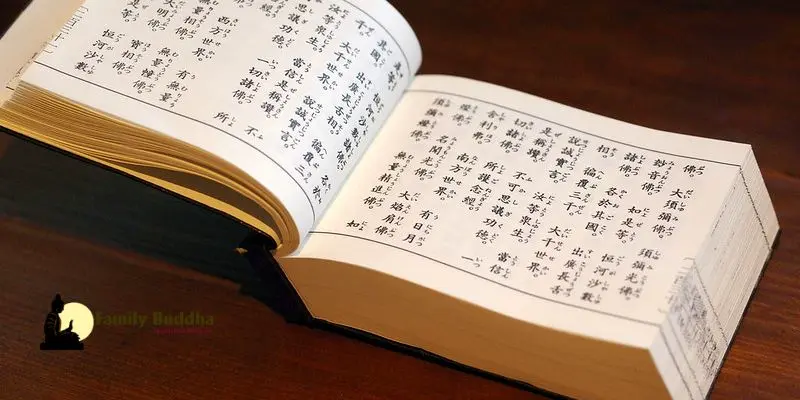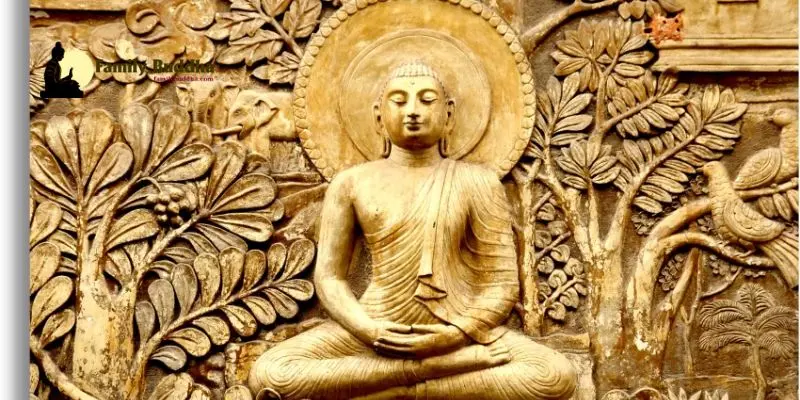The Buddhist wisdom tradition has been a source of profound insight and practical guidance for centuries. In a rapidly changing world, the timeless teachings of Buddhism offer a way to cultivate personal growth, ethical living, and a deeper understanding of the human experience. What is secular Buddhism?
Secular Buddhism, a contemporary interpretation of these ancient teachings, provides a framework for engaging with the wisdom of Buddhism in a way that is relevant and accessible to modern individuals. Let’s discover more at Familybuddha.com.
Keep the Teachings Alive

The story of Buddhism shows that the teachings (Dharma) have been adapted by humans over the centuries in response to diverse cultural influences. This flexibility and adaptability have allowed the core insights of Buddhism to endure and thrive in different contexts.
What is secular Buddhism? Adapting to Modern Times
Secular Buddhism represents the latest evolution in the long-standing tradition of adapting Buddhist teachings to the needs of the present time. By emphasizing personal experience, mindfulness, compassion, ethics, and the understanding of one’s patterns of thought and action, secular Buddhism provides a fresh perspective on the timeless wisdom of the Buddha.
The Importance of Relevance
In a world that is rapidly changing, the teachings of Buddhism must remain relevant and accessible to contemporary individuals. Secular Buddhism seeks to bridge the gap between the ancient wisdom of the Buddhist tradition and the realities of modern life. By focusing on the practical application of these teachings, secular Buddhism empowers individuals to navigate the complexities of the modern world with greater clarity, resilience, and purpose.
The Evolving Nature of Tradition
The adaptability of the Buddhist tradition is a testament to its enduring relevance. As the world continues to evolve, the teachings of Buddhism must also adapt to remain relevant and impactful. Secular Buddhism represents an important step in this ongoing process, ensuring that the wisdom of the Buddha continues to guide and inspire individuals in the modern era.
Emphasis on Personal Experience
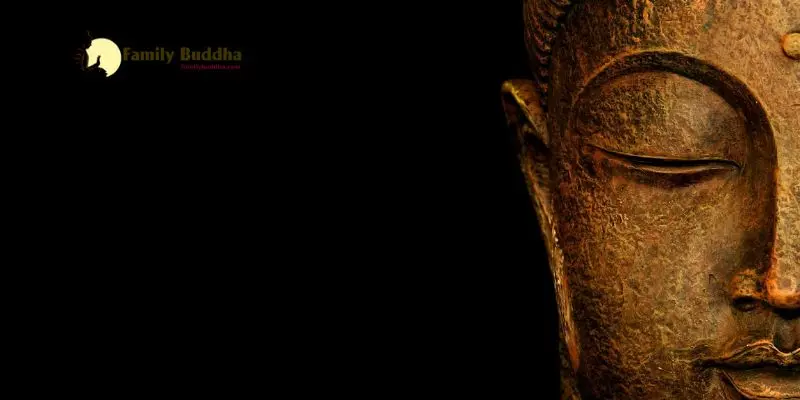
At the heart of secular Buddhism is a focus on personal experience and the direct exploration of the teachings. Rather than relying solely on scriptural authority or the guidance of religious institutions, secular Buddhists emphasize the importance of individual discovery and the cultivation of one’s own understanding.
The Role of Direct Experience
Secular Buddhism encourages practitioners to engage with the teachings through their own direct experience, rather than simply accepting them on faith or the authority of others. This approach empowers individuals to develop a deep and personalized understanding of the Dharma, tailored to their unique circumstances and needs.
The Importance of Questioning
Secular Buddhists are encouraged to approach the teachings with a spirit of inquiry and critical thinking. Rather than passively accepting the teachings, they are encouraged to question, explore, and challenge the ideas presented to them. This process of active engagement fosters a deeper and more nuanced understanding of the Dharma.
The Cultivation of Insight
By emphasizing personal experience and the process of questioning, secular Buddhism cultivates a profound sense of insight and self-understanding. Practitioners are encouraged to explore the nature of their thoughts, emotions, and behaviors, and to use the teachings as a framework for gaining deeper insight into the human condition.
The Relevance of Individual Practice
The focus on personal experience in secular Buddhism recognizes that the path to liberation or enlightenment is ultimately an individual journey. While community and shared practice can be valuable, the core work of transformation and growth must be done by each person by their own needs and circumstances.
Ethical Presence and Mindfulness
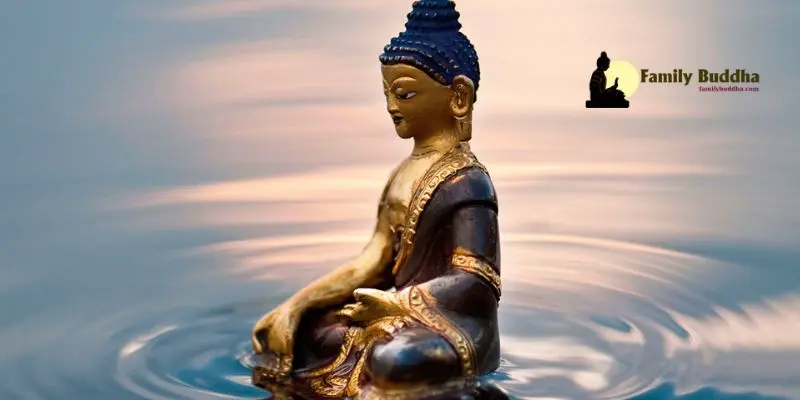
A central tenet of secular Buddhism is the cultivation of ethical mindfulness and presence. By cultivating a deep awareness of the present moment and a commitment to ethical living, practitioners can navigate the complexities of modern life with greater wisdom and compassion.
Mindfulness and the Present Moment
Secular Buddhism emphasizes the practice of mindfulness, which involves the cultivation of a focused and non-judgmental awareness of the present moment. This practice helps individuals to become more attuned to their thoughts, emotions, and physical sensations, enabling them to respond to life’s challenges with greater clarity and presence.
The Ethical Dimension
Secular Buddhism also emphasizes the importance of ethical living. By aligning one’s actions with principles of compassion, non-harm, and social responsibility, practitioners can cultivate a sense of meaning and purpose in their lives, while also contributing to the greater good of society.
Integrating Mindfulness and Ethics
The combination of mindfulness and ethical living is a key aspect of secular Buddhism. By cultivating a deep awareness of the present moment and a commitment to ethical behavior, practitioners can develop a holistic approach to personal growth and social engagement.
The Relevance of Mindful Ethics
In a world that is often characterized by stress, disconnection, and moral ambiguity, the practices of mindfulness and ethical living offered by secular Buddhism provide a powerful antidote. By helping individuals to become more present, compassionate, and socially responsible, these teachings can contribute to the creation of a more just and sustainable world.
Compassion and Ethics
At the heart of secular Buddhism is a deep commitment to compassion and ethical living. By cultivating a sense of interconnectedness and a concern for the well-being of all beings, practitioners can develop a more holistic and meaningful approach to their personal and social lives.
The Principle of Interconnectedness
Secular Buddhism recognizes the fundamental interconnectedness of all things. This understanding of the interdependence of all life forms and the natural world is a crucial foundation for the development of compassion and ethical behavior.
Cultivating Compassion
Building upon the principle of interconnectedness, secular Buddhism emphasizes the cultivation of compassion – a deep concern for the suffering of others and a genuine desire to alleviate that suffering. Through practices such as loving-kindness meditation and the development of empathy, practitioners can cultivate a strong and enduring sense of compassion.
Ethical Living
The compassion cultivated in secular Buddhism is closely tied to ethical living. By aligning one’s actions with principles of non-harm, honesty, and social responsibility, practitioners can contribute to the creation of a more just and sustainable world.
The Relevance of Compassion and Ethics
In a world that is often characterized by greed, hatred, and indifference, the emphasis on compassion and ethical living in secular Buddhism offers a powerful antidote. By helping individuals to develop a deeper sense of connection and concern for the well-being of all beings, these teachings can inspire meaningful personal and social transformation.
The Way – The Four Tasks
The core of the Buddhist path, as outlined in the teachings of the Buddha, is often referred to as the Four Noble Truths. Secular Buddhism presents these foundational teachings in a way that is relevant and accessible to modern individuals, framing them as the four key tasks that practitioners must undertake on the path to greater understanding and freedom.
Acknowledging Suffering
The first task in the secular Buddhist framework is to acknowledge the reality of suffering and dissatisfaction in human life. This involves a clear-eyed recognition of the challenges, difficulties, and painful experiences that are a fundamental part of the human condition.
Knowing the Causes of Suffering
The second task is to investigate the underlying causes of suffering and dissatisfaction. Secular Buddhists explore how attachment, aversion, and ignorance contribute to the perpetuation of suffering, and they seek to develop a deeper understanding of the complex web of factors that shape the human experience.
Cultivating Freedom from Suffering
The third task is to engage in practices and behaviors that can lead to freedom from suffering. This may involve the cultivation of mindfulness, the development of compassion, the letting go of attachments, and the cultivation of a more balanced and harmonious relationship with the fluctuations of experience.
Embodying and Sharing the Path
The fourth and final task is to embody and share the path of understanding and freedom. Secular Buddhists are encouraged to integrate the insights and practices of the Dharma into their daily lives, and to find ways to share these teachings with others in a manner that is relevant and accessible.
The Relevance of the Four Tasks
The four tasks outlined in the secular Buddhist framework provide a clear and practical roadmap for personal growth and transformation. By engaging with these teachings, individuals can develop a deeper understanding of the human condition, cultivate greater inner peace and well-being, and contribute to the creation of a more compassionate and just world.
Conclusion
Secular Buddhism offers a contemporary and relevant interpretation of the timeless wisdom of the Buddhist tradition. By emphasizing personal experience, ethical mindfulness, compassion, and the practical application of the teachings, secular Buddhism provides a powerful framework for personal growth, social engagement, and the cultivation of a more just and sustainable world.
As the world continues to evolve, the teachings of Buddhism must adapt and evolve as well. Secular Buddhism represents an important step in this ongoing process, ensuring that the wisdom of the Buddha remains a vital and transformative force in the lives of individuals and communities alike.




